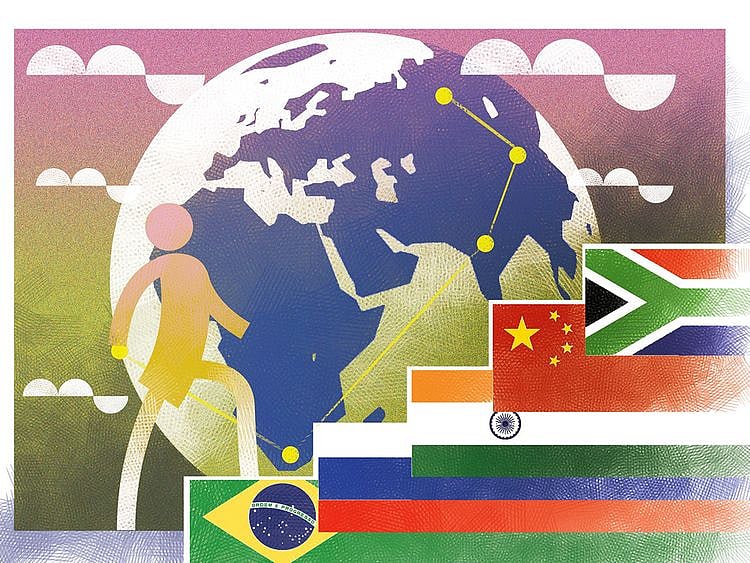BRICS alliance expansion is a watershed moment
Inclusion of UAE and other nations will help develop equitable global relations

In a world characterised by shifting geopolitical landscapes and economic realignments, the prospect of expanding the BRICS alliance holds the promise of ushering in a new era of equitable international relations.
The foundation of such a development rests on the need to transform the prevailing global dynamics from discord between major poles to harmonious collaboration among diverse nations. As we navigate the complex interplay of global events and outcomes, the expansion of BRICS emerges as a beacon of hope for achieving this much-needed equilibrium.
Hence, the recent decision to invite the UAE, Saudi Arabia, Egypt, Iran, Ethiopia, and Argentina to join the BRICS alliance is a watershed moment. This strategic move is not merely about expanding numbers; it symbolises the recognition of new economic and geopolitical realities. While discussions around membership expansion have unfolded at the Johannesburg summit, unity among existing BRICS members prevails.
The inclusion of the UAE into the BRICS family has evoked praise from the leadership. President His Highness Sheikh Mohamed bin Zayed Al Nahyan expressed the UAE’s thanks for the inclusion into BRICS.
Underscoring the recognition, His Highness Sheikh Mohammed bin Rashid Al Maktoum emphasised that this acknowledgement is a testament to the UAE’s carefully balanced international policies.
With the UAE’s entry into BRICS, its potential contribution to the alliance becomes pivotal, particularly in critical technology sectors such as artificial intelligence, renewable energy, internet services, and space exploration.
Embracing new participants
For the alliance to remain not just relevant, but also influential in shaping the future, it is imperative that the grouping embraces new participants.
Drastic changes in economic power balances, the emergence of new economic giants, and the decline of established players have all rendered the old frameworks obsolete. Recognising this reality is essential to prevent situations that hinder the establishment of a just global order.
China and India, within the BRICS fold, have demonstrated remarkable economic growth and assertive global roles, propelling them to the forefront of the international stage.
By 2030, projections indicate that BRICS will collectively account for 45 per cent of the global GDP in terms of purchasing power parity. Already, the group commands around 31.7 per cent of the world’s GDP as of 2022, surpassing the G-7’s share of 30 per cent in the same period.
As the world grapples with multifaceted challenges, a united and inclusive BRICS sets an example by prioritising cooperation for the greater good. In an age of evolving global dynamics, the expansion transcends being a mere strategic move.
It signifies a paradigm shift in international relations — a shift from confrontational approaches to collaborative efforts, from exclusive memberships to inclusive partnerships.
As the BRICS alliance charts its course into the future, it beckons the world to rally around a more equitable and harmonious global order.
The time has come to reshape the world narrative, and the expanded BRICS alliance can indeed be a catalyst for this transformation.
Sign up for the Daily Briefing
Get the latest news and updates straight to your inbox
Network Links
GN StoreDownload our app
© Al Nisr Publishing LLC 2026. All rights reserved.